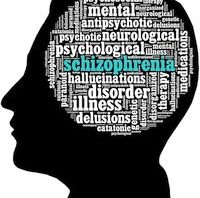Compared to other mental health disorders, schizophrenia is not very common; however, its symptoms can be incredibly disabling. Schizophrenia is a chronic mental disorder that severely impact a person’s behaviors, thoughts, and feelings. Individuals with schizophrenia are transported into “psychosis,” or a loss of contact with reality.
According to the National Institute of Mental Health, Schizophrenia is characterized by three types of symptoms: cognitive symptoms, positive symptoms, and negative symptoms.
Cognitive Symptoms:
- Poor “executive functioning” (the ability to understand information and use it to make decisions)
- Trouble focusing or paying attention
- Problems with “working memory” (the ability to use information immediately after learning it)
Positive Symptoms:
- Hallucinations
- Delusions
- Thought disorders
- Movement disorders
Negative Symptoms
- “Flat affect” (reduced expression of emotions via facial expression or voice tone)
- Reduced feelings of pleasure in everyday life
- Difficulty beginning and sustaining activities
- Reduced speaking
Comparatively, the negative symptoms of schizophrenia receive less attention than the other types of symptoms, possibly because they are more subtle. However, negative symptoms are the major contributor to low functioning and debilitation in most patients with schizophrenia. Negative symptoms can be categorized into 5 different categories.

Clearly, these symptoms, although not as obvious as positive symptoms like hallucinations or delusions, can have detrimental consequences to a person’s ability to find success in life. For example, one cannot successfully function at school or work if they have poor motivation. In addition, inattention to social cues or unresponsive affect may deteriorate friendships and relationships with family members.
Fundamentally, the three types of symptoms in schizophrenia are caused by two distinct dopaminergic pathways in the brain. Positive symptoms appear when there is too much dopamine in the mesolimbic pathway, spanning from the midbrain to the limbic system. On the other hand, negative symptoms and cognitive symptoms develop from not enough dopamine in the mesocortical pathway, spanning from the midbrain to the cerebral cortex.

Dopamine is one of the major excitatory neurotransmitters in the brain. So it makes sense that too much activity between synapses in the mesolimbic pathway of schizophrenic patients results in seeing or hearing things that aren’t there. Similarly, it is reasonable that too little dopamine in the mesocortical pathway of schizophrenic patients causes depressive and lethargic behaviors.
The dichotomy of the etiology of these symptoms make it difficult to treat the disorder. The first drugs to treat schizophrenia are called “first generation” antipsychotics (ie. chlorpromazine and haloperidol). These antipsychotics are effective at treating the positive symptoms of schizophrenia, but they have negative side effects and do not effectively treat negative or cognitive symptoms.
A second generation of antipsychotics, called “atypical” antipsychotics, were an improvement in severity of side effects and treatment of negative symptoms (ie. Clozapine). treatment does not impact the negative symptoms present in schizophrenia.
Atypical antipsychotics, however, improve negative symptoms by about 25%, compared with 10 to 15% improvement with first generation agents, according to a 2002 study in Current Psychiatry. Even still, the debilitating effects of negative symptoms persist in patients with schizophrenia with the current treatment available.
All in all, one may never know the grim effects of schizophrenia until they experience the disorder first- or second-hand. Some of the most debilitating symptoms of schizophrenia remain untreated in many patients, and further research needs to be conducted to better understand the mechanisms of schizophrenia’s development.
